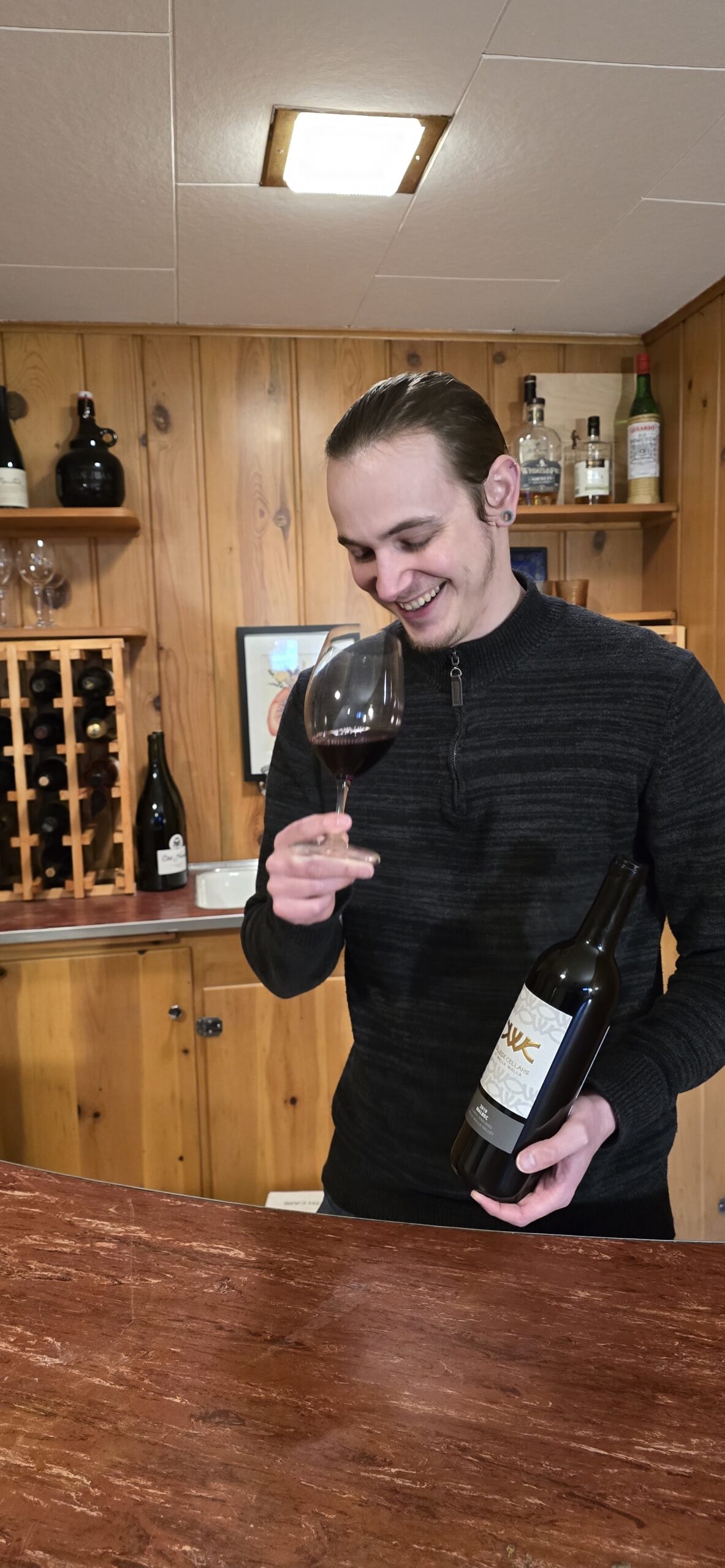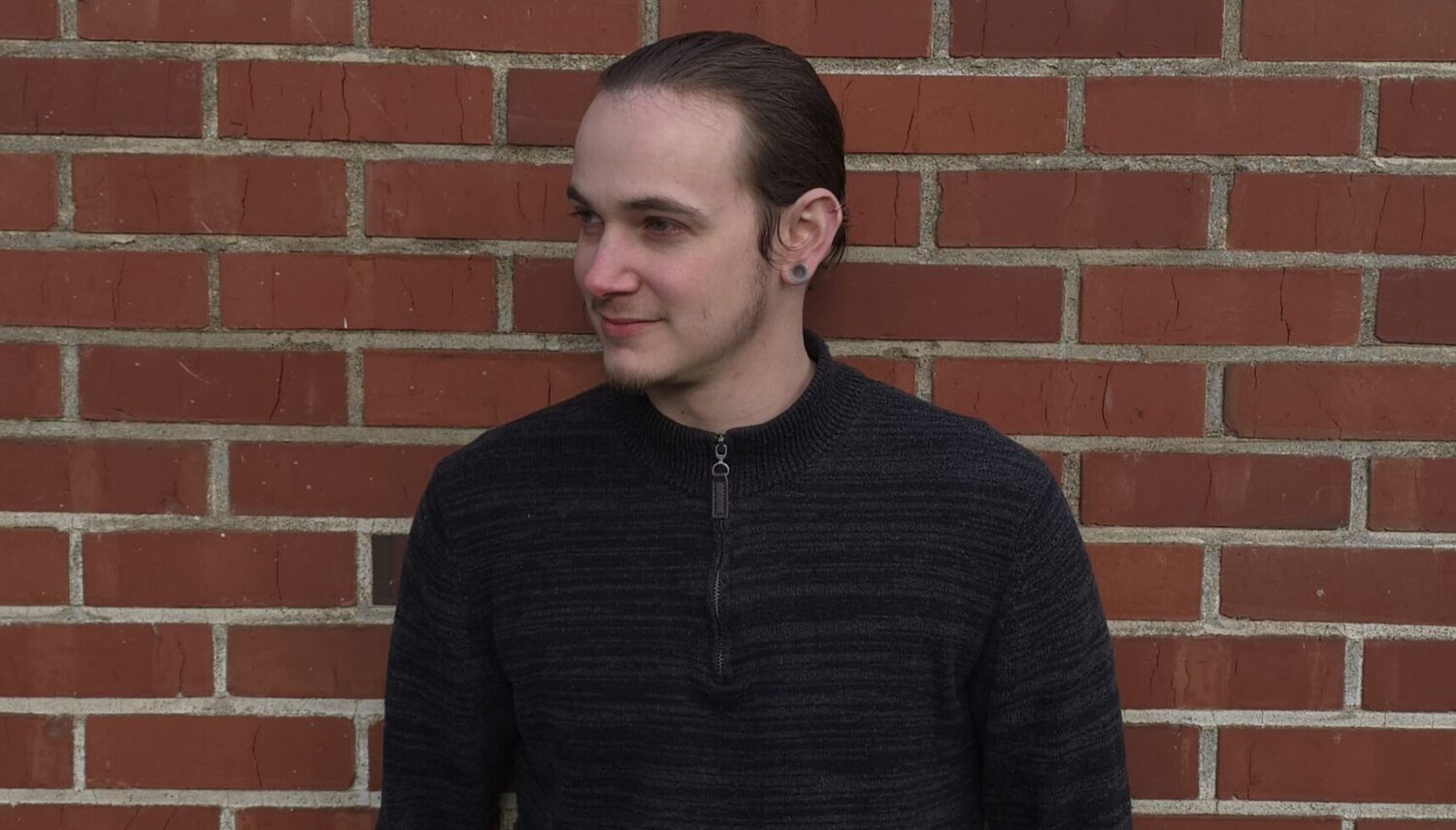Nick Jackson is a 2017 WWCC EV Alumnus and the Laboratory Technician at Long Shadows Vintners in Walla Walla, WA. He has a passion for wine chemistry, and is Washington through and through.
Gene Hoffman (GH): Can you please update me on some basic information, including your date of graduation from the EV program, current employer and position?
Nick Jackson (NJ): I graduated from the EV program at WWCC in June 2017. I am currently employed at Long Shadows Vintners as the Laboratory Technician.
GH: How did you get into wine?
NJ: When I was younger I watched the movie Bottle Shock (RIP Alan Rickman). The whole aspect of grapes to wine and winemaking in general captivated me, and from that point I pursued winemaking as a career. I worked with my counselor and teachers in high school to get into WSU to study winemaking. After about a year at WSU, I moved to Walla Walla and started classes at WWCC in Fall of 2014.
GH: Is there someone in the EV world that you admire, including fellow EV alums?
NJ: Gilles Nicault. I have the amazing opportunity to work with him at Long Shadows. His 30 years of French, American, and other styles of winemaking have really left an impression on me. I believe I learned more at Long Shadows in 5 years than all my previous years combined. Gilles is a really genuine guy with incredible experience in the wine industry that showcases his winemaking practices and the quality of the wine.

GH: What’s special to you about working in the wine industry?
NJ: Honestly, it’s just the fact that we get to experience the exciting and unique process of turning grapes into wine. This transformative process is what brings me joy in winemaking. It starts in the vineyard and every single vintage is completely different. Next to that I love the production side of the wine industry; there is so much to do and it’s never the same thing. As soon as you start bottling season, that lasts for a little while and we transition back into testing, racking, and filtering. We are never doing the same thing for too long before we get tired of it. Even harvest is only a couple months long until we get into malic season.
GH: What is your favorite part of your job?
NJ: I was never big into science in school and even in the wine program. Having hands-on experience in the winery lab has made me fall in love with wine chemistry. All my daily tasks are different forms of wine tests I find extremely enjoyable, and it’s a great place to broaden my education and learn new things. In addition to the lab work, I also get to be in-charge of wine filtration. Having the responsibility of that being my domain is pretty cool. It’s interesting to see how a wine can change during the filtration process, the stability of the wine afterwards, and helping make it age-worthy for 10+ years.
GH: What are some of the challenges you’ve faced in the industry?
NJ: The hardest part for me is keeping track of the differences between vintages. Every vintage has been so widely different with climate change affecting it; I always have to be on my toes for things coming in differently.
GH: What do you think differentiates and excites you about Washington wine?
NJ: What excites me the most is that we can literally make all styles of winemaking here. Washington has such a broad spectrum of environments for grapes to thrive in. We have dry farming on the Blue Mountains. We have Red Mountain, hotter than anywhere else. We have unique Wahluke slope; hot but with the river effect. Winemaking in this state as a whole takes inspiration from so many different regions. That’s exactly what Long Shadows does; we showcase that Washington is on par with everyone else in the world, and that we can do it all.
GH: How do you foresee climate change or social issues affecting the local industry in the next few years?
NJ: Short term it’s hard to see what climate change will do to us, maybe contribute to that wide vintage variation that I mentioned earlier. Long term its apparent we are getting hotter, higher alcohol. Spring is getting pushed back more and more, which delays budbreak and harvesting and can push us into frost. Barrel prices each year keep going up, but as an industry we don’t often raise the price of our products. That’s going to cause some friction in wine production. The industry might be looking at more tank ferments with staves as opposed to barrels or focusing on specific cooperages, just the ones we like the most. The danger of smoke, the danger of frost, these are big factors right now.
GH: What are some up-and-coming trends in wine that you’re following?
NJ: I am really interested in low intervention style winemaking. Not natural wines per se, but the lighter style of winemaking. It’s very different than what Washington and California are used to with the big heavy reds. The low intervention brings us more into an old world, lighter style. I also have a major interest in skin-contact whites; I think they add unique substance and body to what you traditionally get in white wines. As for dessert wines, I’ve always had a passion for fortified reds, and I’ve long dreamed of doing a fortified malbec. I think malbec with its profile can do unique things with that style.
GH: What advice can you share with future EV graduates?
NJ: Don’t rush it too much and jump the gun. Take this chance as a student and a new graduate to experience all the different styles of winemaking, not just in the state, but what the industry as a whole has to offer you. If I had the chance, I would have loved to have traveled internationally to work in some different regions.


Join the Conversation